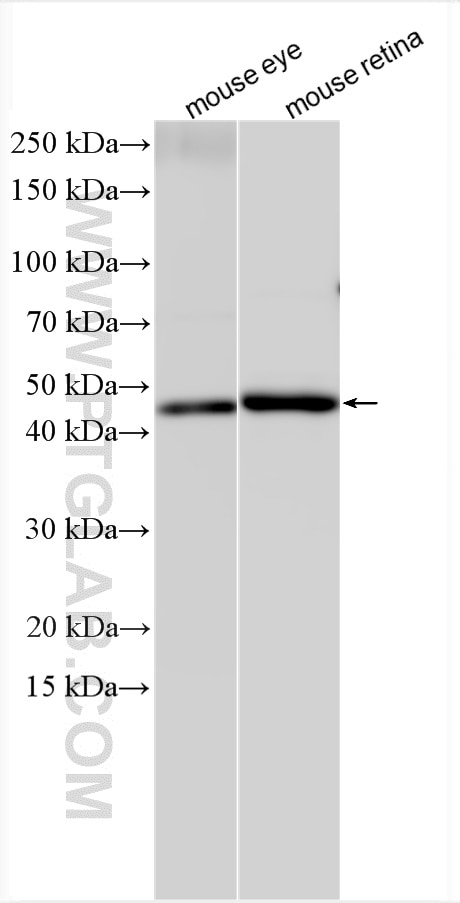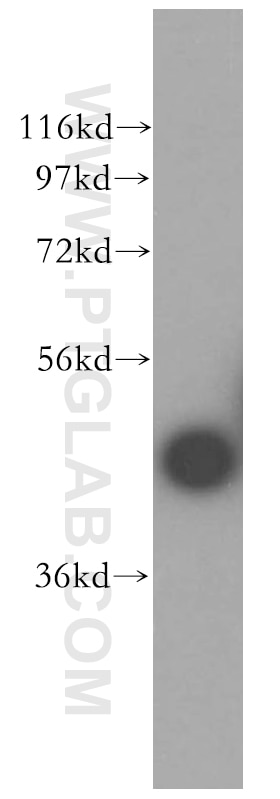Tested Applications
| Positive WB detected in | mouse eye tissue, mouse retina tissue |
Recommended dilution
| Application | Dilution |
|---|---|
| Western Blot (WB) | WB : 1:1000-1:6000 |
| It is recommended that this reagent should be titrated in each testing system to obtain optimal results. | |
| Sample-dependent, Check data in validation data gallery. | |
Published Applications
| WB | See 1 publications below |
Product Information
13736-1-AP targets CA14 in WB, ELISA applications and shows reactivity with human, mouse samples.
| Tested Reactivity | human, mouse |
| Cited Reactivity | mouse |
| Host / Isotype | Rabbit / IgG |
| Class | Polyclonal |
| Type | Antibody |
| Immunogen | CA14 fusion protein Ag4673 Predict reactive species |
| Full Name | carbonic anhydrase XIV |
| Calculated Molecular Weight | 337 aa, 38 kDa |
| Observed Molecular Weight | 45-50 kDa |
| GenBank Accession Number | BC034412 |
| Gene Symbol | CA14 |
| Gene ID (NCBI) | 23632 |
| RRID | AB_2065836 |
| Conjugate | Unconjugated |
| Form | Liquid |
| Purification Method | Antigen affinity purification |
| UNIPROT ID | Q9ULX7 |
| Storage Buffer | PBS with 0.02% sodium azide and 50% glycerol , pH 7.3 |
| Storage Conditions | Store at -20°C. Stable for one year after shipment. Aliquoting is unnecessary for -20oC storage. 20ul sizes contain 0.1% BSA. |
Background Information
Carbonic anhydrase XIV (CAXIV, Car14) is highly expressed in the hepatocyte with predominance in the canalicular membrane and its active site in the extracellular milieu. The CA XIV isoform may also be of importance for regulation of neuronal excitability and transport processes in brain.
Protocols
| Product Specific Protocols | |
|---|---|
| WB protocol for CA14 antibody 13736-1-AP | Download protocol |
| Standard Protocols | |
|---|---|
| Click here to view our Standard Protocols |
Publications
| Species | Application | Title |
|---|---|---|
Glia Developmental maturation and regional heterogeneity but no sexual dimorphism of the murine CNS myelin proteome |







